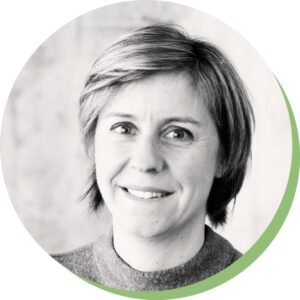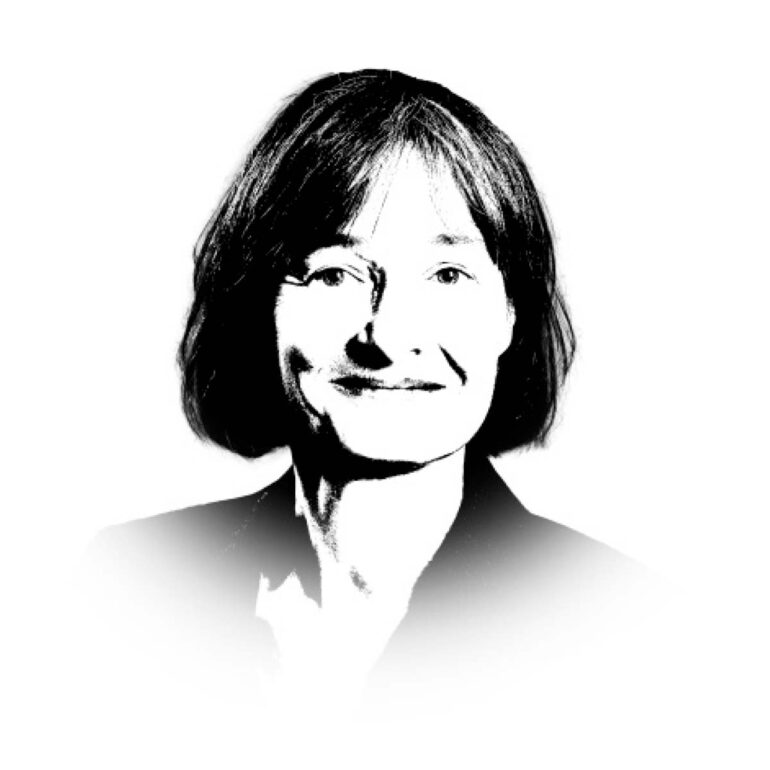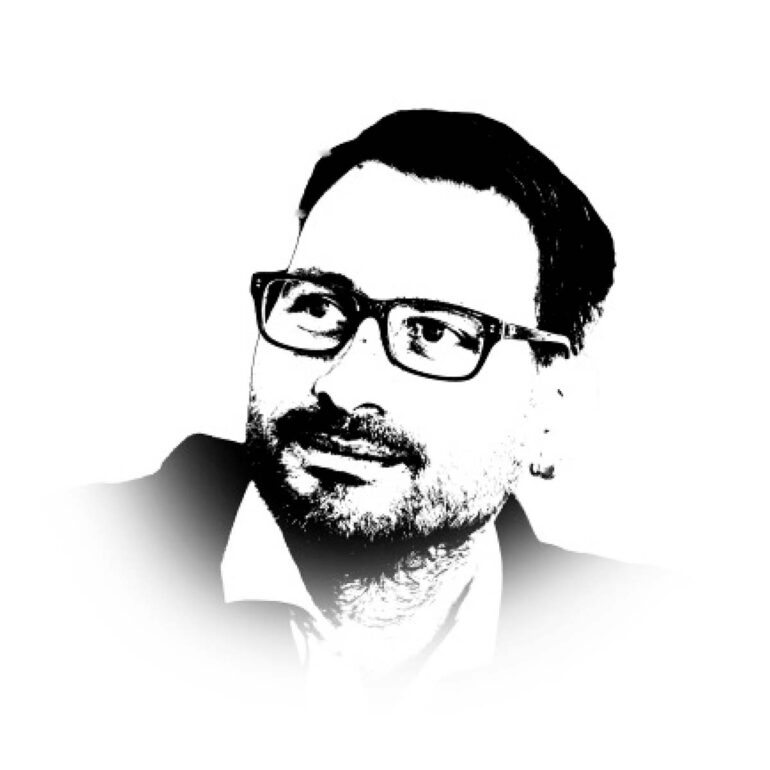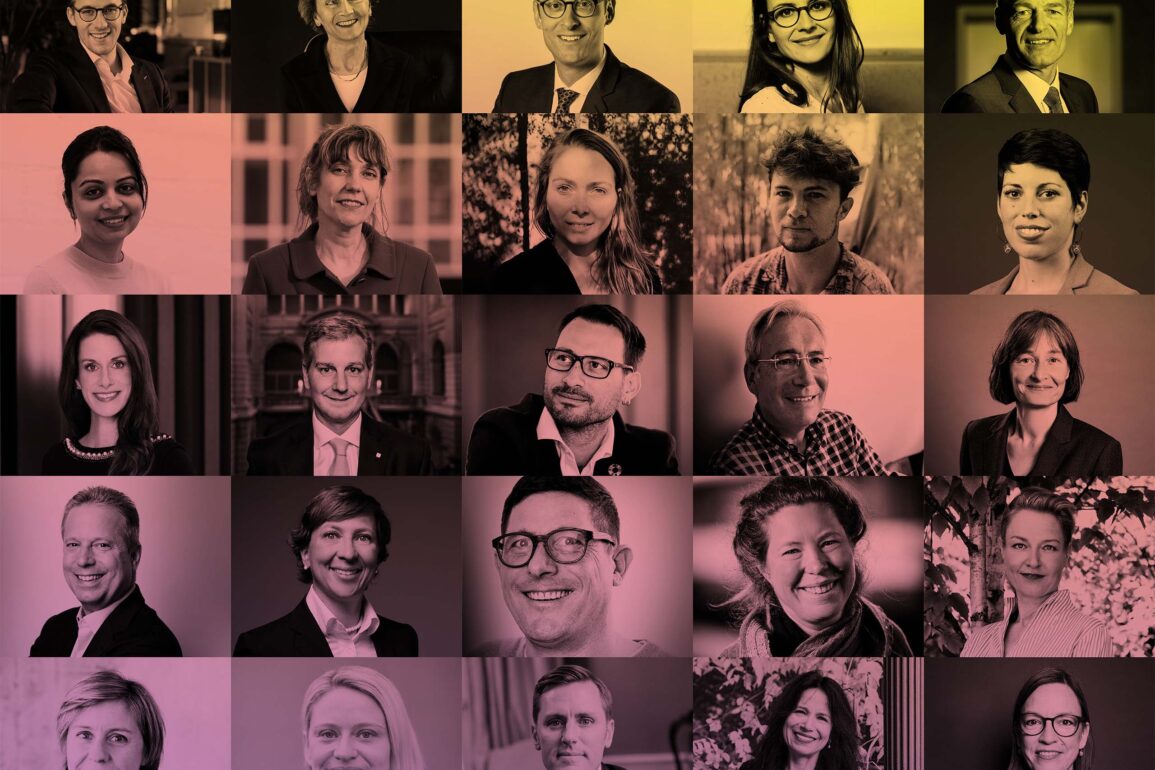Foundation boards reflect many of the inequalities in our society. At the same time, board members note significant diversity at different levels.
63,886 people in Switzerland serve on foundation boards. According to the 2022 Foundations Report, the vast majority, i.e. 92%, only hold one of the existing 70,043 seats on boards. The majority are men, at 68%. Men also hold multiple positions: 87% of those with five positions or more are men.
A majority seeking more diversity
In their recent publication ‘Diversity and public charitable foundation boards in Switzerland’, Laetitia Gill and Dr Aline Kratz-Ulmer examined the level of diversity in the make-up of foundation boards. The percentage of women who took part in the survey (47%) was an over-representation in comparison to their actual presence on boards. The study also shows that age inequality exists alongside gender inequality.
36% of respondents were aged between 50 and 59, 31% were over 60 and only 11% were under 40. ‘Interestingly, all age groups agreed that diversity is a strength,’ says Laetitia Gill. However, differences emerge when they assess their own boards: ‘the older someone is, the more diverse they believe their board to be’. This difference also varies according to respondents’ gender. ‘Unlike men, women tend to believe their board is less diverse,’ she says
Not an end in itself
A lack of diversity is also seen in educational levels. 79% hold an academic qualification. 15% have attended a specialist higher education institution. A majority of 73% would like diversity to be taken more seriously but, as Laetitia Gill notes, different kinds of diversity aren’t always easy to identify. ‘We mustn’t forget invisible diversity. For instance, it’s possible to have a board consisting of five people from Europe, from the West, with one member who grew up in Africa, another in Asia, and so on,’ she notes. Swiss multilingualism is another aspect of diversity that isn’t always visible. The group dynamic would help with decision-making. Diversity on boards, when accompanied by inclusive leadership, facilitates a stimulating and innovative group dynamic. She also points out that having a term limit (only 2% of the foundations that responded have one) helps renew and refresh the board from time to time. Laetitia Gill repeats one important point: ‘Diversity is desirable, but not just for its own sake. We consider it a way of making foundations more efficient.’
‘Doing things better – and making them better known’
Andri Silberschmidt, Trustee, Swiss Entrepreneurs Foundation
‘As with life in general, we have already achieved a great deal, but many people are not aware of what we’ve done,’ says Andri Silberschmidt, discussing the scope for industry, politicians and the philanthropic sector to collaborate even more closely. ‘In my view, there’s always potential for synergies between various initiatives so they can do things better – and make them better known – without having to constantly set up new initiatives,’ says the National Councillor and Vice-President of FDP Switzerland. He’s familiar with all three sectors: after completing a banking apprenticeship at Zürcher Kantonalbank, he went on to establish the food and beverage company Kaisin. His role as a member of the Board of Trustees of the Swiss Entrepreneurs Foundation aligns with this overarching commitment.
Building bridges to politicians
In principle, Silberschmidt sees Switzerland as a very good place to be an entrepreneur. ‘Of course, I’m not satisfied with all the frameworks out there,’ he says. ‘That’s why my parliamentary activities involve trying to make various improvements.’ In line with this, he is lobbying to digitalise the process of establishing a company and to make it easier to access staff and capital. Silberschmidt’s political endeavours also encompass areas of concern to start-ups. ‘We established the parliamentary group for start-ups and entrepreneurship, thus laying the foundations for politicians to take greater account of start-up needs,’ he says. Silberschmidt builds bridges to this political commitment in his role as a member of the Board of Trustees of the Swiss Entrepreneurs Foundation, since a good legal framework is also a concern of the foundation. ‘The Swiss Entrepreneurs Foundation is committed to creating a lively, well-functioning start-up ecosystem,’ says Silberschmidt. The foundation supports start-ups in their scaling and internationalisation phrases. This work is facilitated by the fact that the foundation is not focused primarily on generating returns or bound by a regulatory corset, as the state is: ‘A foundation can selflessly set out its objectives and devote itself to creating a strong ecosystem, without being a party,’ he says. He was elected to its Board of Trustees a year ago: ‘The work I do on the Board of Trustees is truly meaningful and that alone makes it sufficiently appealing.’ Silberschmidt is aware of the work involved in being a trustee and is more than happy to call the voluntary nature of his work into question: ‘If a lot of effort is called for, compensation should be provided.’
‘The topic of ageing is genuinely exciting’
Eveline Widmer-Schlumpf, President of the Board of Trustees, Pro Senectute Schweiz
‘The topic of ageing is genuinely exciting, in every respect,’ says Eveline Widmer-Schlumpf, discussing her engagement with Pro Senectute. This excitement is also the reason why the former federal councillor accepted when, in 2017, the search committee asked her to take on the role of president of the Board of Trustees at Switzerland’s largest specialist organisation for matters relating to ageing. She believes that intergenerational dialogue is a key prerequisite for creating a social system that will be fit to face the future. By extension, the tasks that the organisation faces should be understood in the context of the needs and concerns held by the older people of tomorrow. ‘They’re exciting tasks and, as before, I am delighted to be undertaking them in line with Pro Senectute’s vision.’
Older people have huge potential
Demographic change and the topic of ageing affect the philanthropic sector in various ways. For instance, lots of older people sit on boards of trustees. In Widmer-Schlumpf’s view, Pro Senectute’s Board has a good mix of ages and is well balanced in terms of gender. She believes that the younger generation is generally under-represented on boards of trustees because they are stretched thin with their work and their family: it’s often hard for them to find the time to accommodate additional engagements. In Switzerland, voluntary work is undertaken primarily by people aged between 65 and 75. As a result, older people have huge potential to offer society. ‘We believe that their work will be in greater demand in the future, not least due to the shortage of expert workers.’ Even if this work is unpaid, it is crucial for our society,’ says Widmer-Schlumpf, mentioning in particular caring for older relatives, engagement with cultural and social projects and looking after grandchildren as examples of this. To tap into this potential, she recommends investing in volunteer networks and collaboration, as well as opening a dialogue about what volunteering means, particularly in terms of compensation. ‘Voluntary work is not free,’ she says. She will continue to show her dedication to the needs of the older population as the president of the Board of Trustees at Pro Senectute Schweiz. ‘My work for Pro Senectute is exciting, inspiring and meaningful,’ she says, summarising the appeal of this role.
‘Supporting the very weakest’
Martin Candinas, Trustee, ARGO Stiftung
‘Supporting people with disabilities was always of concern to me, even at the start of my career as a cantonal councillor,’ says Martin Candinas, vice-president of the National Council. Now, he thinks that his dedication back then was why he was asked to join the Board of Trustees 10 years ago. At the time, he was a member of the cantonal committee at Pro Infirmis Graubünden. ARGO’s work revolves around support for people with disabilities in Graubünden, encouraging their social and professional integration through sheltered housing, workplaces and daytime activities. In addition, the foundation offers training and work to put its professional and social integration measures into practice.
Hybrid of the state and the market
‘The foundation bridges a sizeable gap in the system,’ says Candinas. He believes that a foundation is the perfect form and does the job better than the state. The foundation’s decentralised structure, with sites in Chur, Ilanz, Davos, Tiefencastel and Surava, enables it to be close to its operations and those affected. ‘We’re familiar with the needs of society and companies alike,’ he says. As its operations cannot earn money, he does not think the private sector could take on the task either. Candinas sees the foundation as a hybrid of the state and the market. ARGO collaborates with industry, but it also performs tasks on behalf of the state and works with disability insurance offices. In line with Switzerland’s federal approach, the aim is for tasks to be undertaken at the lowest possible level. ‘This is why the state would be well advised to care about foundations’ says Candinas, a member of the centrist Mitte party. ‘It’s simply not the case that all the activities performed or supported by foundations would fall to the state.’ The foundation also faces challenges when it comes to fulfilling its role: it needs to develop and adapt to be able to meet the needs of businesses and society. ARGO has adapted the organisational structure of its four workshops, invested in digitalisation and grappled with the challenge of automation in order to live up to its full potential. In turn, this enables it to go beyond its specific objective and benefit society as a whole. ‘ARGO plays a key role in cohesion within society and between the regions in Graubünden,’ says Candinas. This purpose is his motivation for involvement with its Board of Trustees. As he puts it: ‘ARGO is committed to supporting the very weakest in Switzerland. What could be better than that?’
‘Being a trustee is a privilege’
Angela Mueller, Trustee, Corymbo
Angela Mueller became aware of the vacant position at the umbrella foundation Corymbo via her professional network. She had spent most of her time working in the NGO sector since finishing university, so this role piqued her interest right away. ‘It appealed to me from the start: Corymbo’s values align with my personal and professional values,’ she says. Mueller has been a member of the Board of Trustees at Corymbo since January 2021. She enjoys the contact with donors, but she also finds the breadth of topics covered by this organisation, as an umbrella foundation, to be meaningful. Corymbo’s work relates to culture, environmental issues and social affairs; for example, supporting projects that promote sustainable, social agriculture within Switzerland and abroad. ‘These organisations often need some initial financing in the early days: it is only in the medium term that they can generate returns and continue to operate without financial support,’ she says. ‘The same goes for projects to educate young people in Kenya; training them to be solar specialists, for instance, so they can secure their livelihood.’ Thus, she sees it as a privilege to support these innovative projects on the Board of Trustees.
The chance to do good
Corymbo celebrates its 20th anniversary this year. It’s no coincidence that Mueller is involved in an umbrella foundation – she believes this is the form of the future for foundations: ‘All too often, a foundation’s purpose is too narrow. The money simply sits in the bank,’ she says. The purpose of a foundation, in her eyes, is to get these funds to the right target group. Instead of setting up a foundation, an umbrella foundation is often the better solution, she believes. In Mueller’s view, the board of trustees needs to have a sense of what’s going on in the philanthropic sector and assess which projects are future-proof. A diverse a board as possible also helps, so knowledge is shared. That’s because a foundation’s potential lies in its innovative nature, she thinks. ‘Private foundations often have the opportunity to play a pioneering role and respond proactively to future challenges,’ she says. They need to liberate themselves from traditional structures and ways of thinking and be open to new developments, in every field. That’s how change takes place.’ Given the current pessimistic mood around the world, in particular, Mueller is fascinated by the amount of innovation that small NGOs can achieve, even with limited resources. ‘An incredible number of people are trying very hard to combat the challenges currently facing us,’ she says. ‘That fascinates and inspires me.’
‘It’s our most important resource’
Heinz Karrer, president of the Board of Trustees, UniBE Foundation
‘Education is the foundation of peace and democracy,’ says Heinz Karrer, ‘and Switzerland’s most important resource.’ Without education, Switzerland would not be home to well-educated experts, adds the former CEO of Axpo and president of economiesuisse. It’s hardly surprising that Karrer accepted the role of president of the Board of Trustees of the UniBE Foundation, established in 2021, when the Rector of the University of Bern, Christian Leumann, and former Vice-Rector for Research, Daniel Candinas, offered him the post.
Boosting academic impact
The UniBE Foundation is a charitable foundation of the University of Bern and aims to support research, teaching and education at the university. Karrer has a clear goal: ‘We want to help the University of Bern to put its strategy into practice so it can enjoy greater academic visibility and impact.’ The aim is for the university to retain its place among the top 120 universities worldwide. In certain individual disciplines, it’s even in the top 10. In order for the foundation to work effectively, Karrer thinks that direct contact with researchers is exceptionally helpful – and inspires the members of its Board of Trustees. The more concrete and attractive the foundation’s projects, the more interesting, gratifying and simpler the work becomes for its trustees, says Karrer. He believes that national and international collaborations are taking on increasing importance. ‘Academic dialogue knows no cantonal or national boundaries,’ he says. ‘Collaboration between universities and organisations of various kinds accelerates innovation.’ He sees a positive development in this respect, with the intensity of collaboration having changed considerably. The challenges lie in the need for resources, the legal framework, administration and coordination. Karrer is not worried by the fact that the UniBE Foundation is active in a university landscape that’s already home to successful foundations. On the contrary – their purpose brings them together: ‘Every additional successful foundation helps to strengthen Switzerland as a research hub and educational centre.’
‘We should tackle collective problems collectively.’
Shruti Patel, trustee at Biovision
‘Everyone who works in development cooperation has the similar objectives and will probably be facing the same core challenges,’ says Shruti Patel. ‘We should make more of an effort to discuss these challenges and tackle them collectively.’ This is why she would welcome interactions with members of other boards of trustees as well. Shruti Patel is trustee at Biovison. She finds the discussions with the members of the Biovision Board of Trustees very informative. ‘We all have very different backgrounds, so board discussions are always rich.’
The topic of diversity
At the moment, Shruti Patel works as a senior lecturer at NADEL, the Center for Development and Cooperation at ETH Zurich. The invitation to join the board of trustees took her
by surprise, although she is aware that diversity is a very topical issue and that, as a woman with roots in Africa, her perspectives are valueable. She agreed because she is familiar with the work, spirit and ambition of the people at Biovision. She worked for the aid organisation herself for five years. Now, as of June 2021, she is a member of its Board of Trustees. She still sees potential in interaction between her two areas of work: research and NGOs. She has noticed that researchers usually turn to practical work in order to gather data. ‘What we need is exactly the opposite approach: how can we bring practical work into research?’ she says. How could this change the way we think about science? She emphasises: ‘This interaction has to be continual. That’s very important!’ She attaches great importance to constructing an ecosystem that encompasses charitable causes, and regards the conditions in Switzerland as entirely positive. A NADEL study she led last year found that 36 percent of Swiss residents donate to organisations dedicated to fighting poverty worldwide. In other high-income countries the figure is 20 percent. ‘The Swiss population is generous and tends to engage actively in charitable causes,’ notes Shruti Patel.
‘It’s a personal commitment’
Maria Tortajada, cinémathèque suisse trustee
Photo: Félix Imhof © UNIL
In her role as a trustee, Maria Tortajada is able to breathe life into her passion while also supporting her research – and using her expertise to drive the foundation forward. She is a professor of history and aesthetics of cinema at the University of Lausanne and a trustee of cinémathèque suisse. ‘It’s a personal commitment,’ she says, adding that, ‘of course, it’s obvious that it makes sense for both parties.’ It was self-evident that she would take up the opportunity when it was suggested in 2011 that she become a trustee. She had previously worked with the archive and collaborated with it to organise events, and also draws on the archive’s holdings in her research, too. Conversely, archivists from cinémathèque suisse regularly attend courses at the university. In other words, it is a successful pairing of two institutions, albeit ones with divergent mandates.
Global significance
Unlike the university’s library, the archive fulfils three vital functions: Preserving, restoring, making cinema known/showing films. As far as conservation is concerned: First off, it preserves films, regardless of the medium they are stored on. Secondly, it ensures that equipment and technology are conserved. Employees both need to be able to use old machines and know their way around the latest technology. Finally, the archive also records the history of cinema and Swiss film-making. Even though it’s a private institution, it has municipal, cantonal and national significance. ‘It’s a hugely important institution,’ says Maria Tortajada of cinémathèque suisse. Not many people know that it’s the tenth most important film archive in the world. The archive has undergone major developments over the last 20 years, and while the number of employees has rocketed, it doesn’t have enough resources to meet demand. ‘Facing up to these challenges is also part of my job as a trustee,’ says Maria Tortajada. Despite these hurdles, the institution still has an incredible international network, puts on impressive events and is very active in global debates. This is what fascinates Maria Tortajada about her involvement: ‘It’s wonderful, I’m so inspired by it.’
‘Honest, honourable work’
Laura Amstutz, Trustee, Markant-Stiftung
‘The applications give you a good insight into cultural and educational tends. But they also highlight the challenges facing our society,’ says Laura Amstutz, discussing what appeals to her about her work as a member of the Board of Trustees at Markant-Stiftung. This charitable foundation has a broad base, supporting cultural, charitable projects and those relating to young people. These topics appealed to her, but Amstutz was also attracted by its straightforward, direct approach, which enables her to see the impact of her work: ‘And it’s honest, honourable work.’ Amstutz fulfils a dual role at the foundation, serving both as an actuary and a trustee. Her profile made her a perfect fit for the role. She became aware of it via her personal network and when she met the other members of the Board of Trustees, it was clear that there was a real chemistry among all involved. She believes there is scope to attract younger people as trustees in this respect. ‘I would like to see foundations advertising these posts on (social) platforms,’ she says. She also mentions a second way that younger people could be attracted to these roles: ‘Compensation is certainly important in order to free up the necessary time.’
Elected by the cantonal council
Amstutz’s second trustee role came about in a very different way: she is a member of Luzerner Jugendstiftung, a role elected by the cantonal council. She came into contact with the canton’s youth representative via various projects and she was put forward for the Jugendstiftung’s Board of Trustees. The unique thing about this committee is that its members represent other organisations: ‘Its benefit definitely lies in communication. The organisations’ representatives serve as a connection to various entities, including various youth organisations.’ At the same time, Amstutz thinks that the board’s size runs the risk of inertia. That said, the foundation uses its organisational structure to counteract this: ‘Smaller sub-groups within the Board of Trustees take on responsibility for key topics,’ she says.
‘Creating added value for society’
David Suhr, Trustee, Qhubeka Foundation
It all started with donors keen to support the Qhubeka Foundation in South Africa. ‘This gave rise to the notion of setting up a foundation in Switzerland to collect donations,’ explains David Suhr. He has been part of the project from the start. The simple but valuable approach of using bikes to facilitate access to education, healthcare and the environment won him over. Qhubeka has various programmes, but bikes are always the starting point for their support. The bikes enable children to access education and sport, while young adults and unemployed people can ‘earn’ bikes in various ways, such as through manual labour. Qhubeka trains mechanics on site and offers safety workshops to ensure that the programme is sustainable. Suhr’s involvement in this area is closely linked to his values. He has been shaped both by his Christian faith and his parents, who were development cooperation experts and managers: ‘This motivates me to play my part in making our world a fairer place.’
Major responsibility
As a member of the Board of Trustees at Switzerland’s Qhubeka Foundation, Suhr wants to create added value for society in the long term. He believes that non-profit organisations have a particular responsibility towards the state and its citizens. As foundations are tax-exempt, they have funds that would otherwise be available to the democratic system. ‘In my view, a foundation’s role is to work for its declared purpose and try out new things in these areas, while simultaneously reflecting the viewpoints of the relevant interest groups by working with them from the very beginning.’ To increase the number of young people serving as trustees, he believes that vacant posts should be advertised and communicated via channels specifically chosen to appeal to young people. In addition, serving trustees must be willing to grant their younger colleagues the same rights and obligations. ‘It sounds simple, but in my view it’s not yet something that people are doing in practice,’ he says. Offering training to support young people to become trustees would help, following the approach taken, for instance, by the Board for Good with its scholarships.
‘Equal pay must become a reality as soon as possible’
Lisa Mazzone, board member of the EQUAL-SALARY Foundation
EQUAL-SALARY offers companies a professional approach to help them close the wage gap through a certification system. This major bridge built by the Foundation makes policy requirements a reality for companies, allowing them to highlight their commitment. This issue persuaded Lisa Mazzone to get involved as a board member of the foundation. ‘Equal pay is a basic human right,’ says the member of the Swiss Council of States for Geneva (Green Party), adding: ‘Unfortunately, it still isn’t a reality.’ She believes it’s crucial to work towards equal opportunities in the workplace. Ending discrimination tangibly improves the lives of women. ‘There’s still a lot to be done in this area,’ she says. That’s why she got involved in the foundation as a board member. ‘Equal pay must become a reality as soon as possible,’ says Lisa Mazzone of her commitment. ‘And I want to help make that happen.’
The role of politics
According to Lisa Mazzone, the political world must also play a part in helping the Foundation have a bigger impact. Politicians must be more demanding and ambitious to close the wage gap, she says. The member of the Council of States was elected to the board due to her role as a political representative. She has been in the position for one year and notes the energy driving the Foundation. ‘The Foundation is very innovative,’ says Lisa Mazzone. EQUAL-SALARY also provides tools to promote equal opportunities. A strict salary scale doesn’t actually offer protection from wage gaps in the medium term. ‘It’s about taking a close look at recruitment, training and promotion. Policy should take inspiration from this approach, which allows us to tackle the unconscious bias at the root of discrimination.’
‘For the perfect forward energy’
Franziska Gsell, Trustee, Laureus Foundation
‘A broad range of experience paired with entrepreneurial perspective from various areas can create the perfect amount of forward energy,’ says Franziska Gsell, naming the advantages from which the Laureus Foundation’s Board of Trustees benefits. The CMO of IWC Schaffhausen sits on the Board along with representatives from various sports and sectors of industry. The company has been a global partner of the foundation since 2005, which is how Gsell heard about it. She became a trustee a year ago. The various trustees come from different backgrounds, which poses challenges from time to time. But she says: ‘Challenges are the spice of life – and the spice of beneficial collaboration. Just as in sport, openness, respect, tolerance, foresight and fairness are crucial prerequisites.’
Entrepreneurial thinking
Gsell believes that a transparent communication of how funds are distributed and how the foundation is developing is particularly crucial for a foundation’s success. A further aspect is ensuring that foundations think like entrepreneurs: ‘If they want to have a long-term impact, foundations need to train their employees, get experts involved and invest in their infrastructure and marketing.’ But she also thinks that foundations have certain advantages over companies: ‘They’re generally more agile and flexible and less political. That’s the only way they can meet their purpose, one that goes far beyond profit,’ she says. ‘If every company had a social purpose, the corporate sector could work wonders.’ IWC is beginning to incorporate this approach, she says. The company has recently defined its ‘purpose’: engineering beyond time. IWC wants to use this purpose to create a better future for the generations to come. This commitment to children was also key for Gsell when she decided to take up her role as a trustee: ‘I’m delighted to do my bit to make the world a bit better for our children.’
‘An outstanding socio-political tool’
Marco Chiesa, Trustee, Pro Infantia
The realisation that there was a need for a solid legal structure with skilled, motivated members to support children, families and employees led Marco Chiesa to establish Pro Infantia with four fellow campaigners. ‘Foundations are an outstanding socio-political tool,’ he says. He’s always found motivated, competent people in every foundation he’s come across. ‘They do their bit for our society because they believe in their mission – without asking for anything in return.’ Personally, he gets involved because it’s his chance to make a valuable contribution to something important, something good. ‘The “salary” I get for this work is the children’s smiles, our volunteers’ passion and parent satisfaction,’ he says. There is room for improvement in terms of forging connections between politicians and the philanthropic sector, in his view, which, in turn, could help like-minded people make projects such as Pro Infantia a reality.
A clear division of responsibilities
Pro Infantia was founded in 2017 with the aim of playing a role in the education of pre-school children in Ticino. This issue is important to the SVP president. ‘Education is the responsibility of a child’s parents. As mothers and fathers, we are responsible for our children’s development,’ he says. ‘This task cannot be delegated to the state or private institutions.’ Chiesa recognises that in certain situations, institutions such as crèches can contribute to helping people strike a balance between their job and their family. Ticino is a small language region with about 50 day crèches and he believes that a public/private partnership, with a clear division of responsibilities, is of fundamental significance. The state is responsible for regulation and quality control. ‘The administration of the crèches is in the hands of a private initiative, with fees graded according to income,’ he emphases, explaining the social policy in canton Ticino. ‘There’s no shortage of challenges facing us, but we’re heading in the right direction.’
You’ve all answered our call on LinkedIn to demonstrate your commitment: we’re so grateful. The philanthropic sector is buzzing with energy. This diverse space is kept alive by individuals’ personal commitment and passion. We want to spend the next few months working with you, dear readers, to find ideas and formats that will enable us to drive forward the sector in a participatory, collaborative way.
‘As a trustee, I can help ensure that Swiss pension funds and private persons invest in truly sustainable companies and take the interests of future generations into account today.’
Trustee, Ethos Foundation
‘I’m involved with Fondation IdéeSport because its innovative programmes are developed to adapt to our changing society and make Switzerland a better and more welcoming place.’
Trustee, Fondation IdéeSport
By investing a considerable portion of their assets into a legally independent foundation, my parents created a treasure with unbelievable potential that I would like to develop and preserve.’
Trustee Werner und Helga Degen Stiftung
‘I’m committed to our foundation because we can improve people’s lives in a sustainable way.’
Marc-André Pradervand
President, Board of Trustees, Stiftung Baustei
‘The positive impact that the therapy has on the children is so evident: that’s why I’m more than happy to donate my time and creativity to the foundation. I can see the advances being made via the collaboration with hospitals and therapists, which means my work as a trustee and with our operational team really puts a smile on my face!’
Vice-president, Board of Trustees, Fondation Art-Therapie
‘With my combination of knowledge and experience, and my desire to actively shape the future, I want to do my bit in ensuring that the city of Zurich’s pension fund can continue to perform the task it’s assumed for its members.’
President, Board of Trustees Stiftung Pensionskasse Stadt Zürich
‘The common good is often pushed aside in favour of self-interest, particularly given the current economic and political challenges. So it’s even more important to actively participate (as a trustee) in organisations that work to uphold people’s rights, develop their skills and support them with a focus on inclusion, as the HUMANITAS Foundation does.’
Cornelia Trachsler-Ariol
Trustees, HUMANITAS Foundation – jobs, housing and activities for people with disabilities.
‘Children, education, opportunities – all things close to my heart. The Pestalozzi School Camps Foundation takes marginalised children and puts them at the heart of what it does. These children spend a week living with and learning from the best in the fields of music, dance and science. The fact that the founder and managing director are actively involved in a rigorous and entrepreneurial manner, with heart and soul, is very special indeed. I am so grateful to have been able to support the foundation with advice and assistance from the start.’
Trustee, Pestalozzi School Camps Foundation











